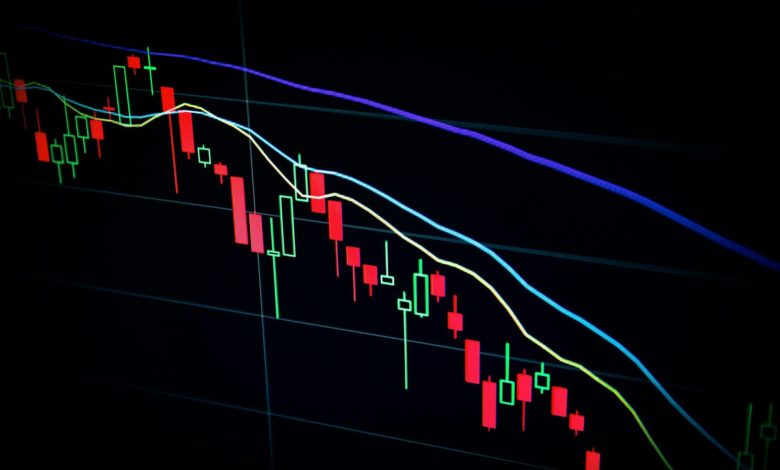Stock Market Today: Stocks Pull Back Amid Trade Uncertainty and Trump’s Tariff Threats

US stocks pulled back on Monday as President Trump fueled trade tensions worries by announcing potential tariffs on imports from Japan and South Korea, scheduled to take place August 1.
The S&P 500 (GSPC) fell by 0.9%, while the Nasdaq Composite (IXIC) and Dow Jones Industrial Average (DJI) dropped by 0.9% and 1%, respectively. This dip follows a week of strong performances, with all three major indices previously hitting record highs. Concerns about the tariffs, combined with uncertainty surrounding global trade agreements, weighed heavily on market sentiment, particularly in the technology sector.
Market Movers:
- Tesla (TSLA): -7.30%: Shares dropped significantly by 7.3% as CEO Elon Musk’s announcement of forming a new political party stirred more controversy with President Trump. The fallout from the feud between Musk and Trump, combined with concerns over the loss of EV tax credits in the latest budget bill, led to a slump in Tesla's stock price. Investors, already uneasy with Musk's increasing political involvement, showed their concerns, resulting in substantial short-seller profits on the stock’s decline.
- Delta Airlines (DAL): -2.62%: Delta fell by 2.62% as concerns about rising costs due to trade tensions and a potential global slowdown weighed on the airline sector. With the earnings season starting, Delta’s upcoming report is now in focus, and analysts are closely monitoring how tariffs and travel demand will impact the company’s performance in the second quarter.
- CoreWeave (CRWV): -3.17%: Shares dropped nearly 3.17% after the announcement of its $9 billion all-stock acquisition of Core Scientific. The deal, aimed at merging AI and cryptocurrency mining capabilities, raised concerns about the efficiency of the merger and the future of the combined entity’s profitability. CoreWeave's move highlights the growing convergence between artificial intelligence and crypto infrastructure, but market reaction has been cautious, leading to a decline in stock price.
- Amazon (AMZN): +0.3%: The stock edged higher by 0.3% ahead of its Prime Day sales event, expected to be a major revenue driver. Analysts predict a 28.4% increase in online sales during the four-day event compared to last year, making it one of the largest e-commerce events of the year. The company's growth prospects are buoyed by continued dominance in the online retail space, especially as it competes with Walmart and Target's own sales events.
Trump’s Tariff Threats and Trade Uncertainty
The main source of market uncertainty was President Trump’s new round of tariff threats against Japan, South Korea, and countries aligning with BRICS (Brazil, Russia, India, China, South Africa). Trump's announcement that tariffs could range from 10% to 70% has stoked fears about the potential for a trade war, especially with economies like China and India, who are major global trading partners of the US. The prospect of tariffs resurfacing in August, just as a temporary pause expires, has traders on edge.
In a further escalation, Trump indicated that any country aligning itself with BRICS would face an additional 10% tariff. This has raised concerns about the global economic repercussions, particularly in markets already navigating the uncertain effects of ongoing trade conflicts. Investors are closely watching for more details on potential tariff rates and how they might affect corporate earnings in the second half of the year.
Earnings Season and Oil Market Impact
As the second-quarter earnings season begins, investors are looking for signs of resilience in corporate earnings amid the backdrop of escalating trade tensions. Delta Airlines’ earnings report this week will be the unofficial kickoff for the season, providing insights into the airline industry’s health and its exposure to tariff-related costs. The results from major firms like Tesla and Delta will offer valuable information on how businesses are navigating the trade uncertainties.
Additionally, the oil market remains a point of interest, with West Texas Intermediate crude trading above $67 per barrel. Despite concerns over rising supply, OPEC's decision to increase production has yet to significantly affect prices. Analysts believe that the global oil market may see a further price drop by the end of the year, as supply increases and global demand expectations adjust.
Looking Ahead
Looking ahead, the markets will closely watch President Trump’s trade policy developments as the July 9 deadline approaches for a final decision on new tariffs. The August deadline for increased tariffs on key US trading partners remains a critical issue for investors, particularly in sectors like technology, automotive, and manufacturing, which rely on global supply chains.
The start of the earnings season will offer more clarity on how companies are dealing with rising costs and changing consumer behaviors in response to tariffs. Key reports this week, including Delta Airlines’ earnings, will be pivotal in gauging how businesses are positioning themselves for a potentially more challenging second half of the year.




